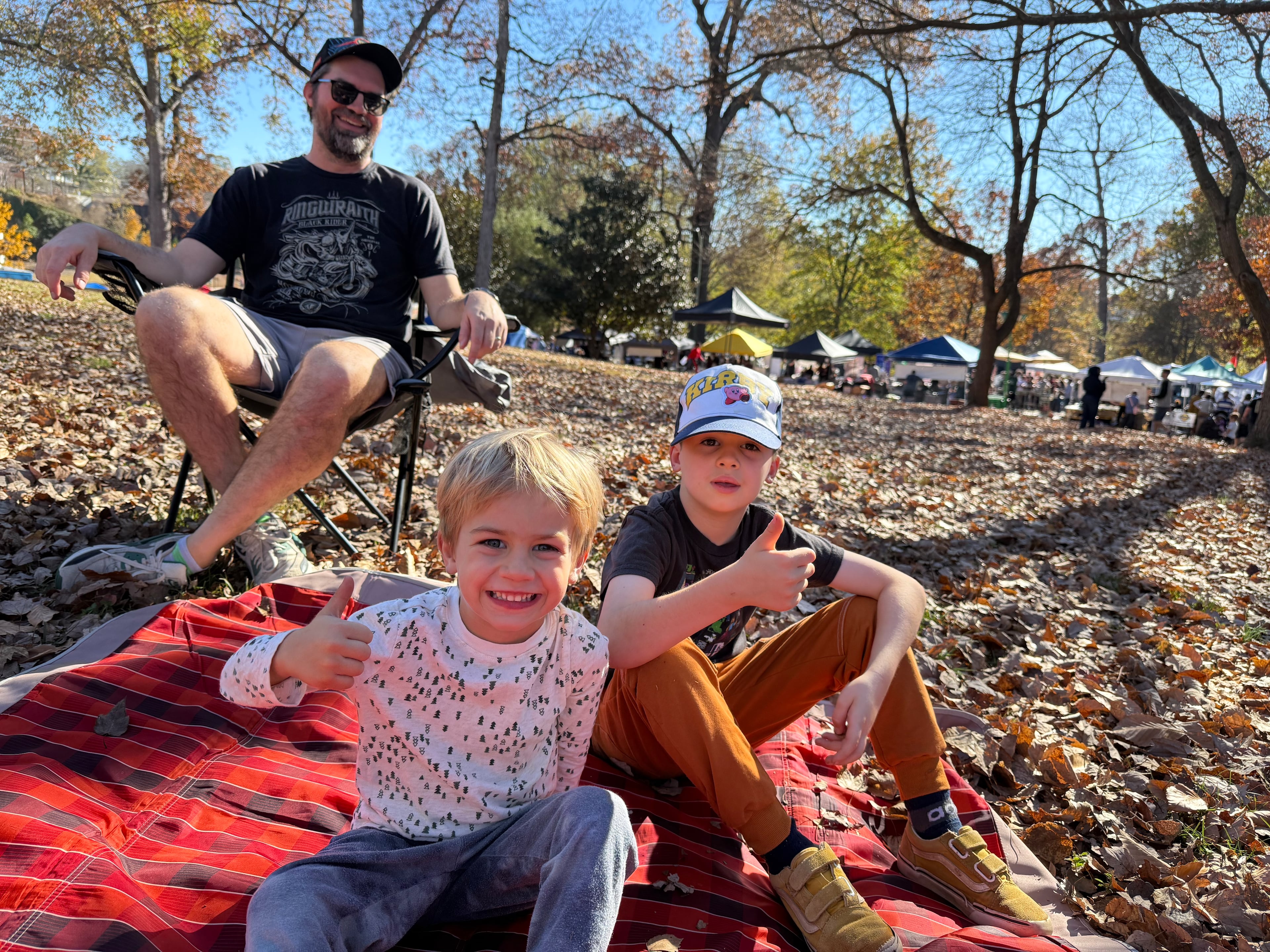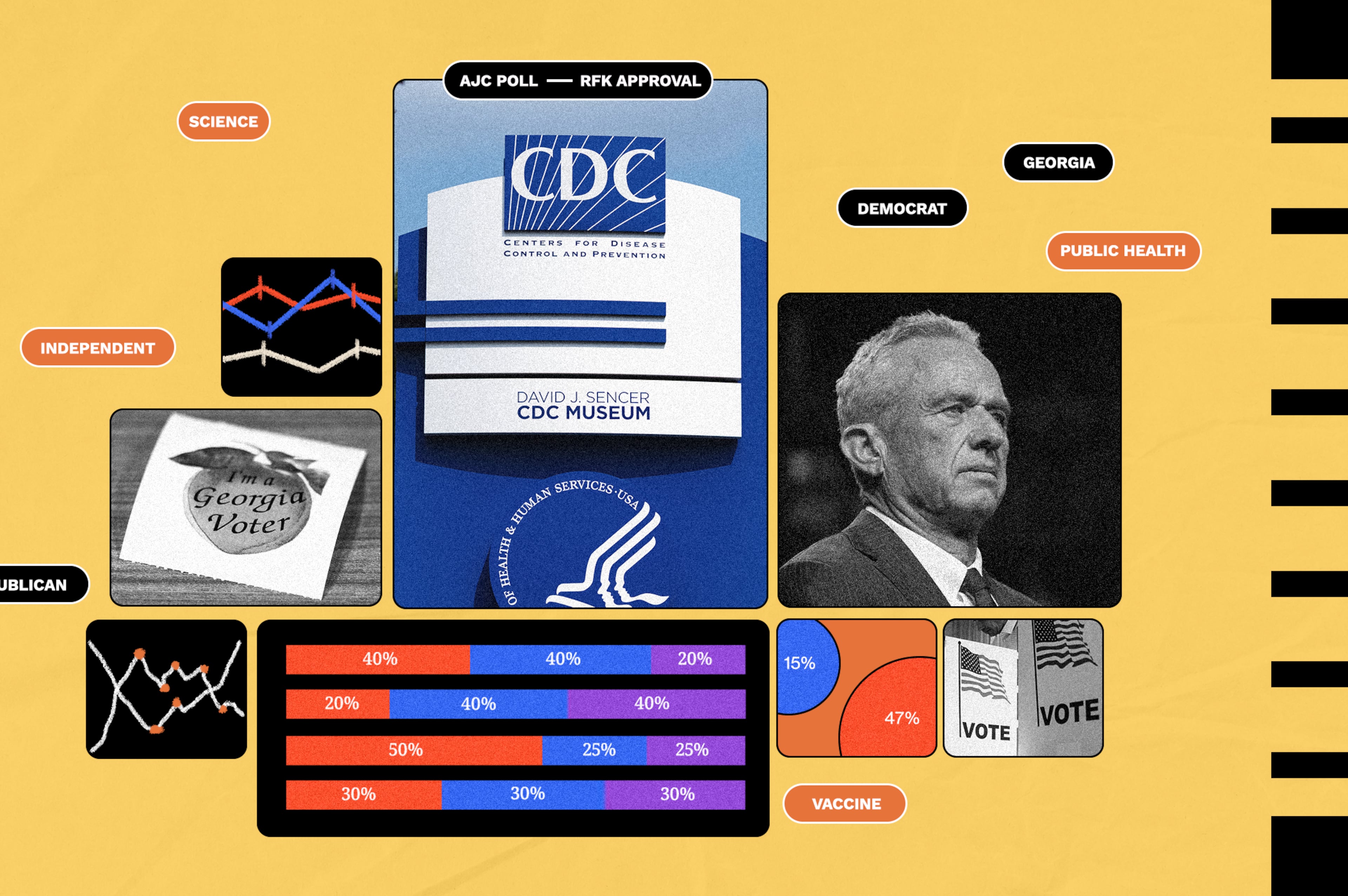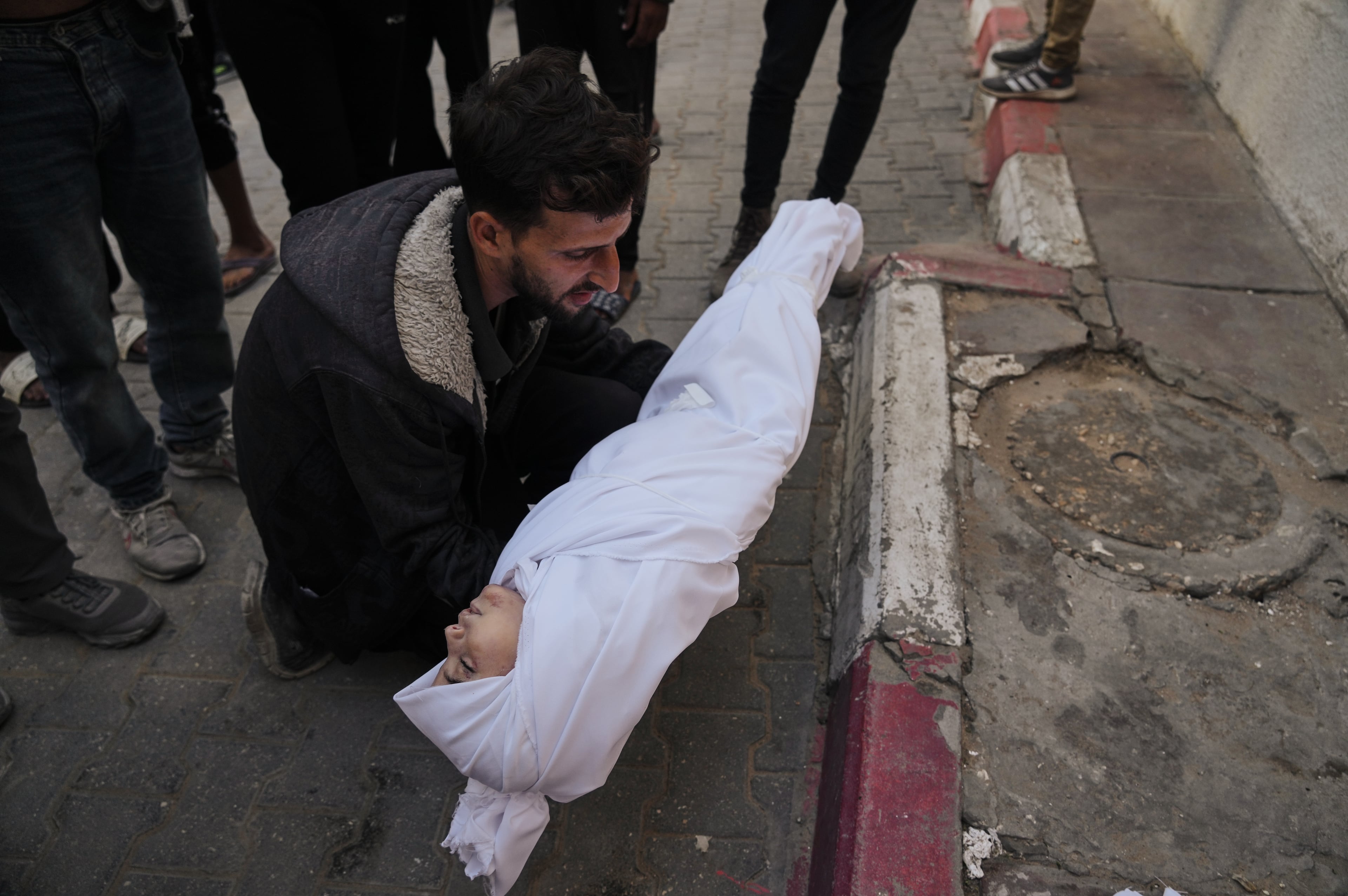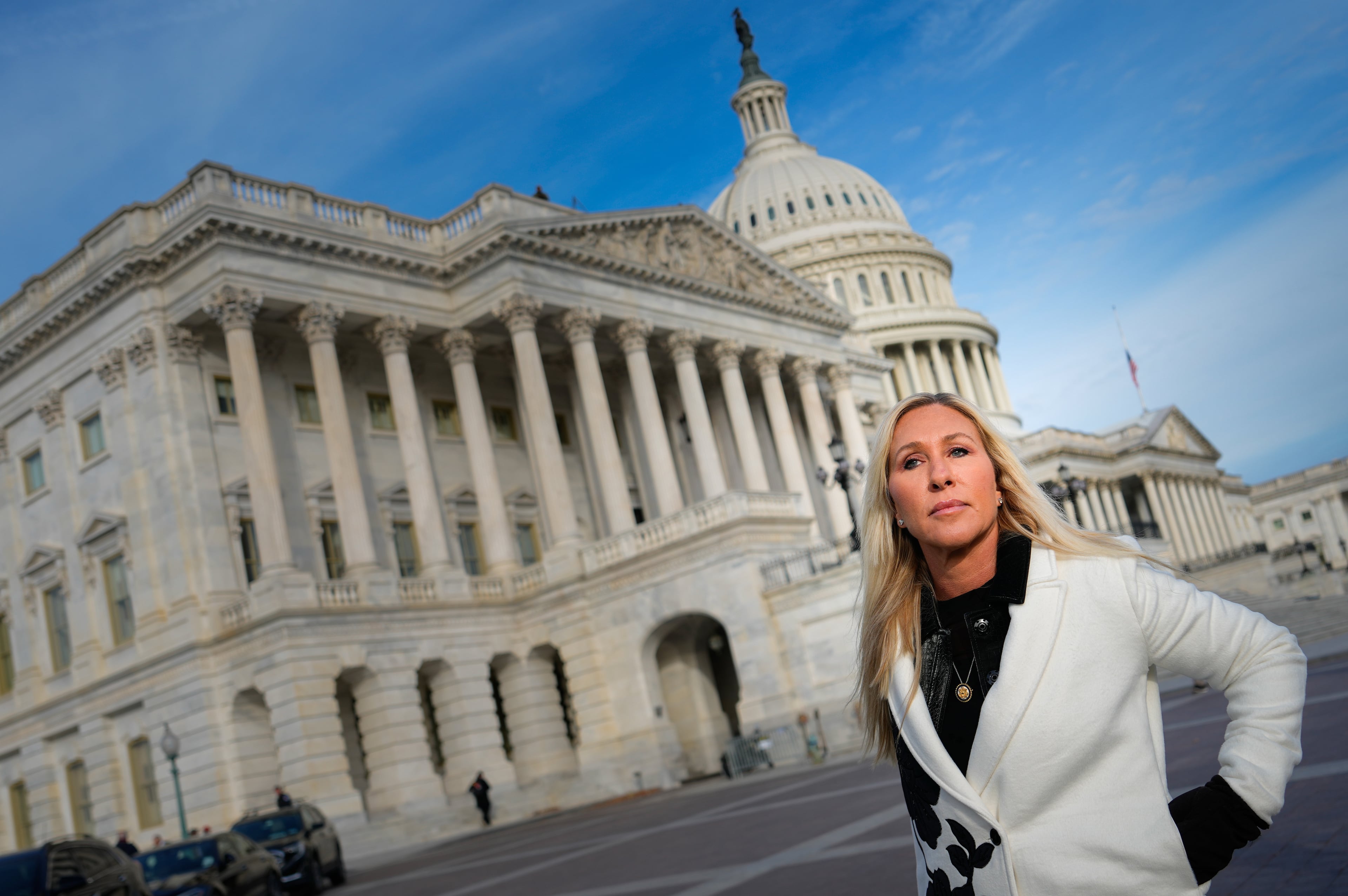Atlanta’s first Fall Halal festival fills Grant Park
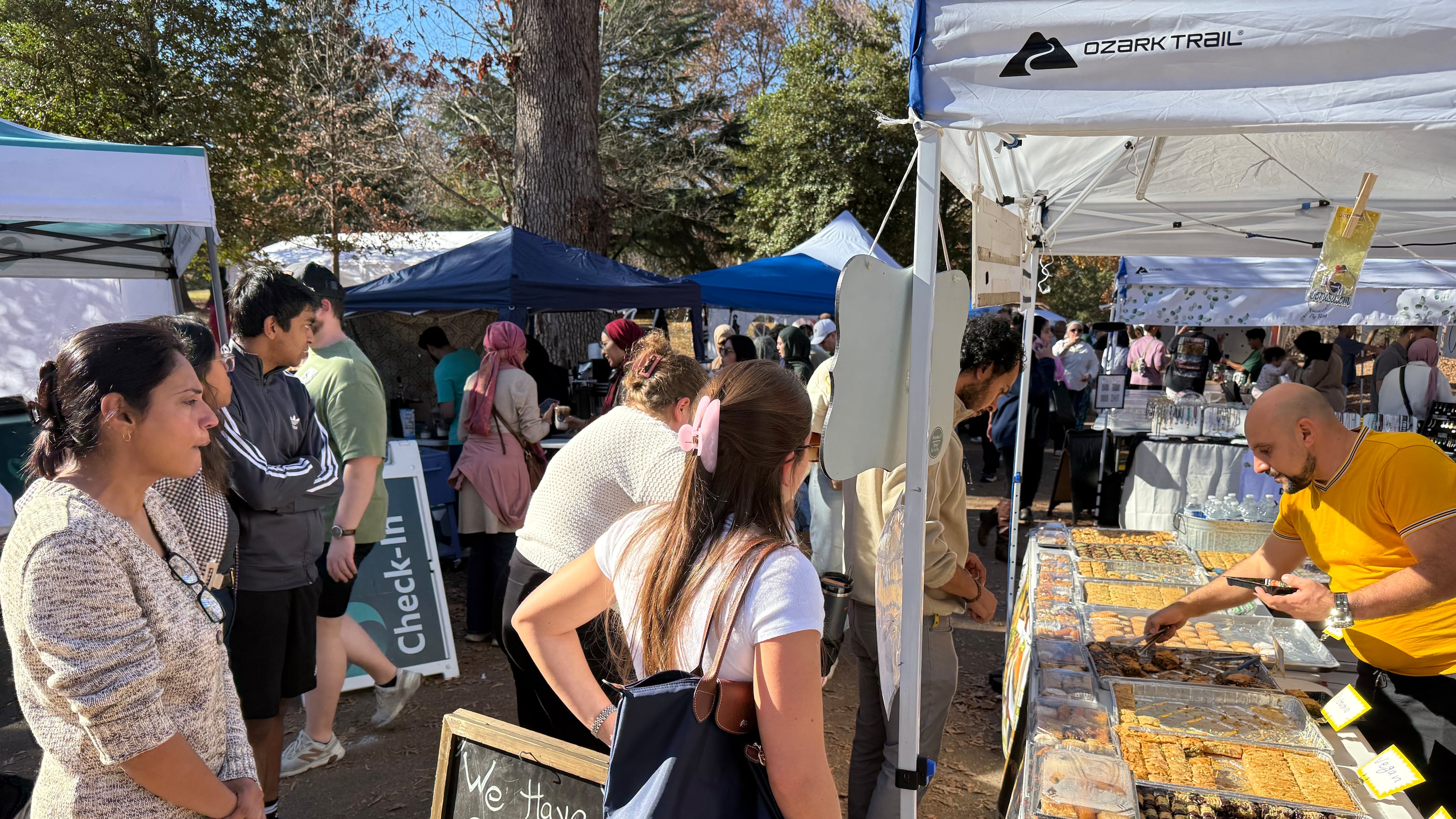
The Atlanta Halal Fall Festival opened at noon Saturday and Sunday under a bright clear sky in Grant Park near downtown Atlanta in what organizers hope will become a city tradition.
A brisk crowd sampled pastries, meat sandwiches, coffees and desserts from Muslim traditions across the globe, and shopped for jewelry and crafts.
Families laid out picnic blankets on the sloping grass and listened to music from a soundstage, while kids climbed inside giant inflated plastic globes and rolled around.
Attendees ranged from people in full long dresses and veils to others in jeans and T-shirts.
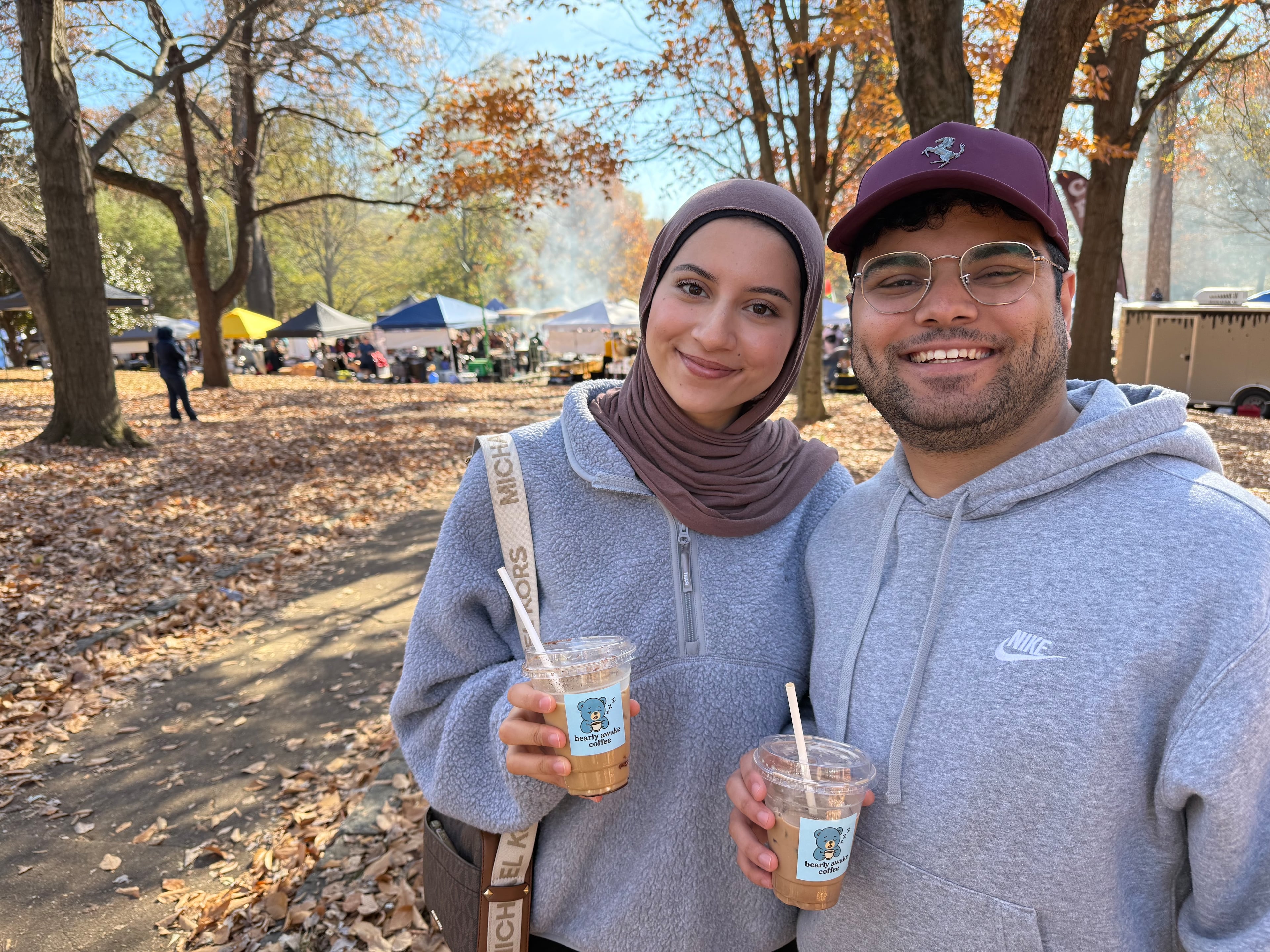
Othman and Layan Awad, newlyweds who heard about the festival on Instagram, said they were looking forward to freely choosing from vendors because all were following the Muslim culinary protocols for food preparation.
“Halal” for Muslims means something that’s permitted, and is strongly associated with ways of preparing food. The opposite of halal is “haram,” or forbidden.
At the Halal Fall Festival, there’s no alcohol or pork, and the meat should be raised and slaughtered in ethical ways.
Layan Awad cooks and says she could tell the vendors had skills.
“From the smell I can tell we’re definitely going to enjoy it,” she said.
The Awads were holding a cinnamon graham iced latte and an “oh so chocolatte” from another of the vendors.
Vendors came mostly from the Atlanta suburbs but also as far away as Chicago. Their food traditions originated in countries across the globe, everywhere from the Middle East to India to Vietnam and South Korea.
The new festival gave an opportunity to Ekhlass Gzar, who fled Iraq in 2008 after the U.S. invasion and now lives in Clarkston. It’s her dream to open a restaurant.
When they heard about the festival, she and her children jumped by buying coffee urns at Goodwill and on Amazon and by thrifting a pastry display and other needs for a vending tent.
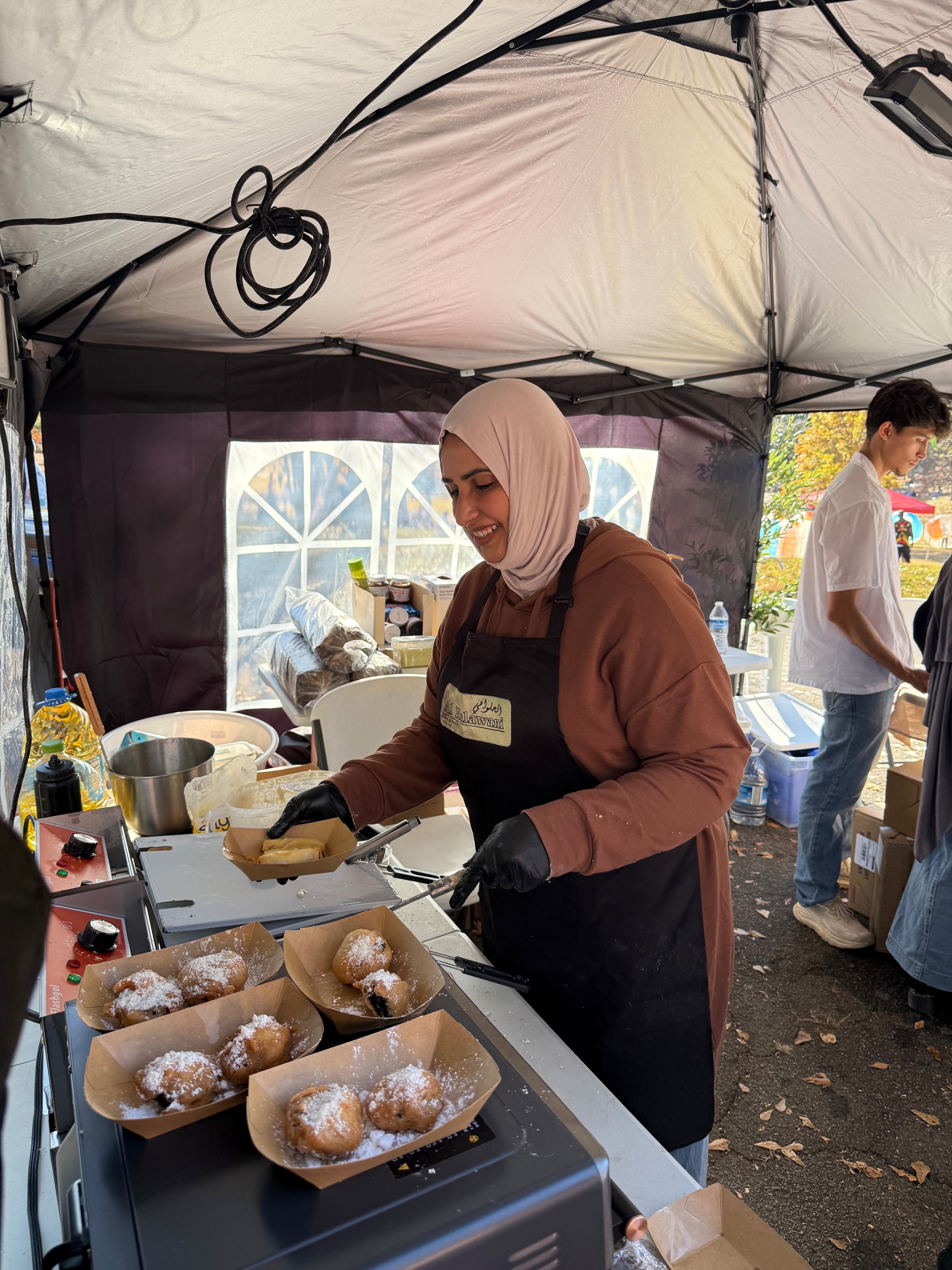
“My sister and I made the sign two weeks ago from an old coffee table!” said her daughter, Luma Younis, grinning and pointing to the charming “Al Halawani” sign hanging from the tent.
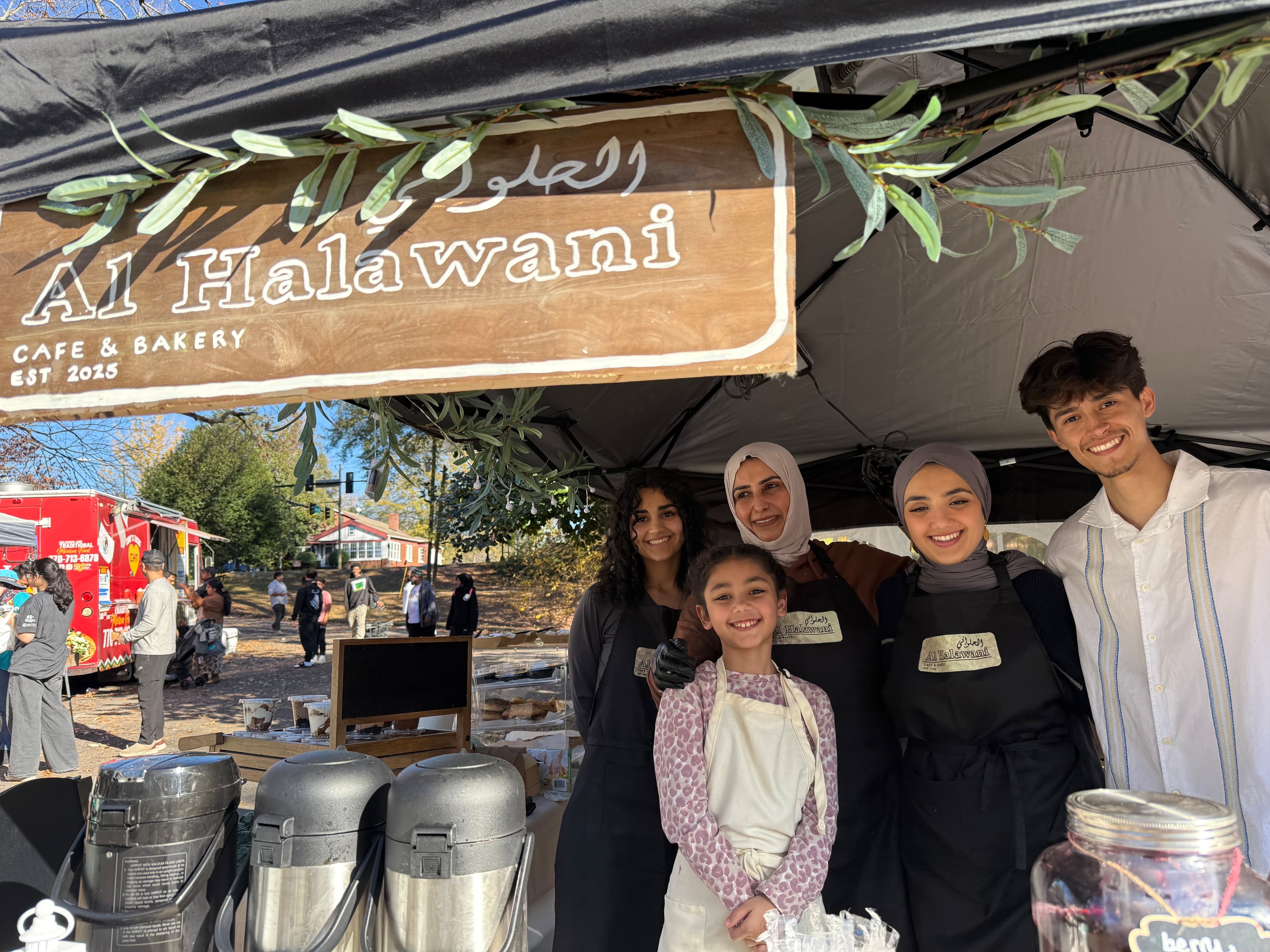
Younis is in medical school to become a pediatric emergency physician, and her sister is studying computers at Georgia State University.
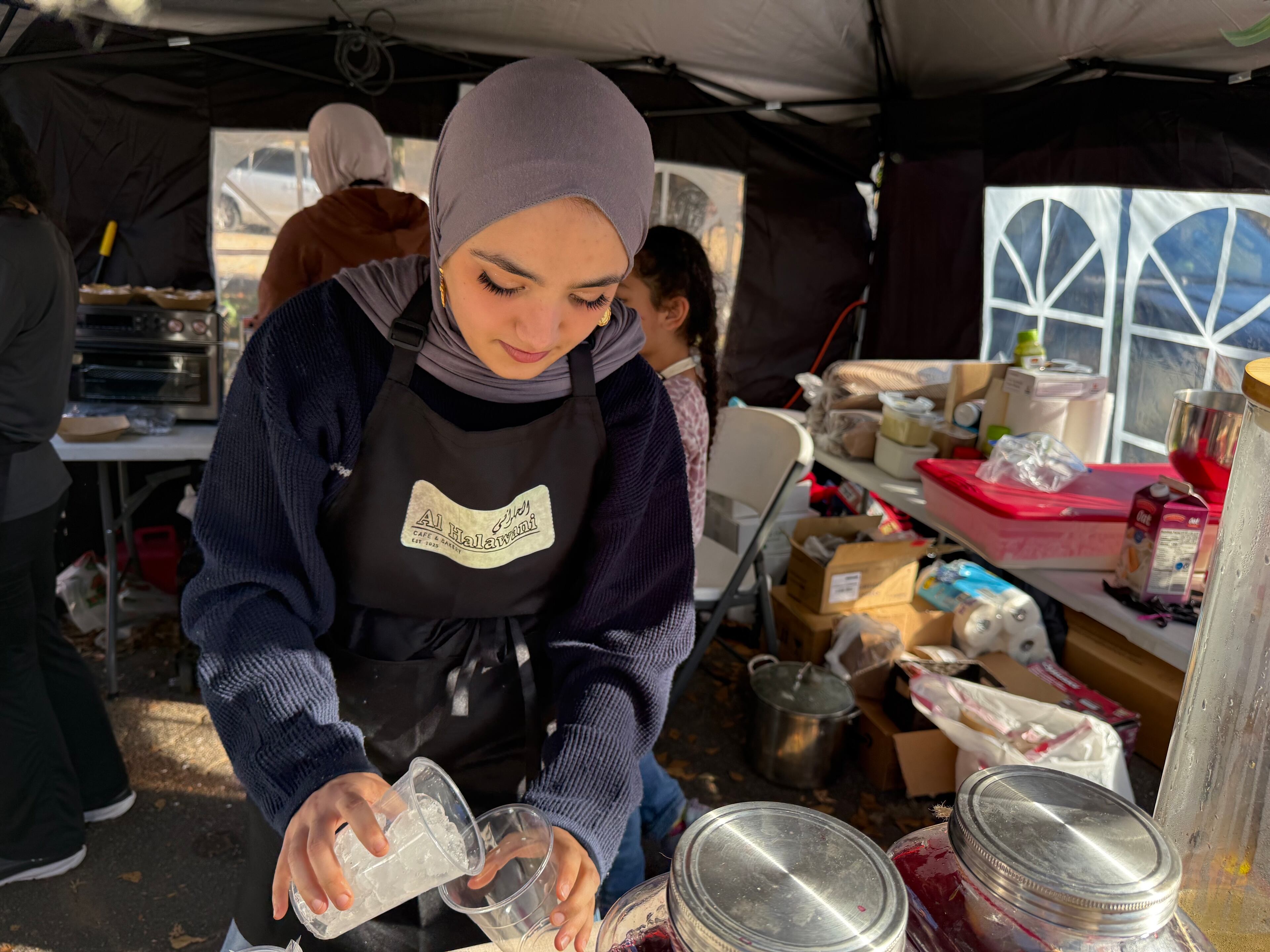
The festival was scheduled to go from noon to 8 p.m. Saturday and Sunday.
Hasnain Lakhani founded the festival this year, starting with a summer event in a parking lot. He said he was traveling from Pakistan to Saudi Arabia, surrounded by halal food and Muslim culture, when he called his friend and said Atlanta should have a festival where people can get some of that at home, and also mix with the broader community. As soon as they got started on the idea, sites and vendors came out of the woodwork.
There were some charity tents, too, including one where 50% of revenues would go for aid to Gaza. There was also a booth selling merchandise that said, “Free Palestine.”
“We wanted to curate an inclusive space,” Lakhani said.
Atlanta is late to the game, he said, following festivals that have been set up in Los Angeles, New York, Texas and Michigan.
Many religious traditions have dietary rules, either all the time or during certain parts of the religious year. Christian Orthodox followers right now may be following a fast before Christmas where they don’t eat meat, fish or dairy, but can eat shellfish. Followers of Jewish kosher rules in general do not eat shellfish or pork. Many Hindus do not eat beef.
Matt Mastin, who lives in Grant Park and ran into the festival Saturday with his sons Arthur, 3, and Oscar, 7, returned with them Sunday for a repeat.
Arthur and Oscar ate shaved lime ice from Siddiq’s ices and a combination fruit and punch drink that at first looked blue but was red when it poured out, Arthur said.
They also got in the giant clear Sumo Ball Nation bouncy balls and rolled around. But Mastin was hooked by the shredded beef sandwich he had Saturday.
“The food — that’s why we came back,” Mastin said.
